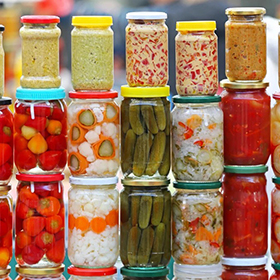
Numerous studies have now shown the benefits of probiotics and prebiotics in reducing inflammation and oxidation. A recent meta-analysis indicated a significant reduction in serum CRP following probiotics.[1] Studies suggest the consumption of probiotic yogurt containing L. acidophilus and Bifidobacterium animalis in pregnant women for nine weeks led to a reduction in inflammation (CRP) as it did for colorectal cancer,[2] autoimmune disease,[3] and chronic kidney disease.[4] A number of studies have shown that prebiotics can benefit the elderly who suffer from chronic inflammation by improving their gut microbiota and immune function, ultimately reducing inflammation and oxidation. An 8 g daily prebiotic mixture given for three weeks to elderly subjects reduced inflammation (IL-6) improved T cell counts –immune function.[5]
The anti-inflammatory and antioxidant properties of probiotics are thought to act by reducing gut inflammation.[6] Good gut bacteria produce short chain fatty acids (SCFAs) following the fermentation of soluble fibre by gut bacteria like butyrate, propionate and acetate, which are anti-inflammatory.[7] The probiotics, Lactobacillus plantarum, isolated from Chinese traditional Tibetan kefir grains, had strong reducing capacities, lipid peroxidation inhibition capacities, iron-chelating abilities, various free radical scavenging capacities and potent antioxidant activity.[8]
[1] Mazidi et al. Nutrients 2017.
[2] Anderson et al. 2004.
[3] Shoaei et al. 2015.
[4] Mazid et al. 2016.
[5] Guigoz et al. 2002.
[6] Alipour et al. 2014.
[7] Tedelind et al. 2007.
[8] Tang et al. 2017.